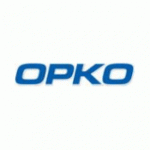E- Learning – What does the Future Hold
While it has been around for years, e-learning came into its own during the pandemic, when COVID made it too dangerous for teachers and students to gather in traditional classrooms. Many people wonder what place e-learning will have in education in the years to come.
E-learning, also known as eLearning, is an umbrella term for any type of learning activity that uses electronics to enhance the learning environment. A number of technologies fall under the e-learning canopy; these technologies include interactive whiteboards, online classes, and audio and video conferencing.

The pandemic forever shaped e-learning. Many students (and their teachers and parents) had never even heard of e-learning before 2020, but are now proficient at using electronic devices to optimize the education experience. In a recent survey, in fact, 73 percent of higher education students said they would prefer to take at least some of their courses fully online following the pandemic. But what might that learning experience look like?
What E-learning Might Look Like in the Future
Students may someday “plug into” an electronic device to learn a skill, somewhat like in The Matrix, when Neo straps on an assortment of electrodes that allow him to download a martial arts training program directly into his brain. He awakens and delivers the now-famous line, “I know Kung Fu.”
Tomorrow’s students may learn using an advanced form of fMRI, for example, an imaging technology that allows researchers to see which portions of the brain are active during various tasks. Conceivably, one could someday use an fMRI to record and upload the brain activity of an expert performing a specific task; a student could then download that activity to their brain and instantly understand how to perform that task.
Admittedly, we are quite a long way from having the ability to download knowledge, but researchers are already investigating the potential for fMRI in education. Until then, e-learning will likely augment traditional methods of education.
Heavy on adaptive learning
Every student learns in their own unique way, so tomorrow’s learning platforms will adapt themselves to the learner. Complex algorithms and assessments help guide the tailor-made coursework, rather than relying on the determination of teachers who may have subconscious biases about the capabilities of students.
A more social approach to learning
Mention e-learning and the image that often comes to mind is of a lone student staring at the computer in solitude, but tomorrow’s e-learning will involve plenty of social interaction and collaboration in the form of online forums, file-sharing platforms, and classroom-wide chatrooms. As social learning applications grow and develop, they will likely become the backbone of tomorrow’s classroom.
Exciting for visual learners
People learn in different ways. Some are audio learners that gain most of their information by listening, while others are kinesthetic learners who benefit from hands-on experiences. Many video learners, which means they gain most of their information through visual experiences. Traditional learning benefits audio learners, who excel in the standard lecture/note taking format of today’s classroom. E-learning provides a heavy helping of video-based lectures, instructional videos, and advanced graphics and more.
Personalized
Artificial intelligence (AI), once regarded as the sinister driving force behind HAL 9000 and the Y2K conspiracy theories, is now emerging as an important tool in e-learning. AI can drive adaptive learning, guide students through courses depending on the students’ past learning behaviors, predict and address challenges individual students may face long before the learner falls behind, and even provide on-the-fly course modification and personalization.
Easier to digest
Large, multi-phase learning projects can be mind-numbing, even for the most agile of learners. Breaking lengthy lessons into smaller bits can make it easier to absorb and retain information. Microlearning chops up larger lessons into shorter segments.
More fun and engaging
Learning is always easier when it is fun. Gamification is the art of making learning seem more like a game. Tomorrow’s advanced graphic capabilities, along with ultra-high-speed internet, will combine fast-paced action with advanced learning methods in ways that encourages students to learn, practice, and apply what they have learned to other lessons.
Learning from anywhere with mobile learning
The computers of the late 20th century were woefully inadequate when it came to learning – slow internet speeds, lack of memory, and boring graphics impeded learning. Today, we have a wider variety of electronic devices that range from lightning-fast desktop computers to super slim laptops and even smart phones. Undoubtedly, tomorrow’s students will have an even wider array of devices to use for mobile learning.
Immersion learning with virtual and augmented reality
Blackboards and books are yesterday’s news! Tomorrow’s learners will fully immerse themselves into every subject. Imagine talking to historical figures in a virtual reality setting rather than just reading about them!
In just a few short years, e-learning will likely be quite different from what it is today. Whether it will completely replace classroom learning remains to be seen, but it seems increasingly likely. Once seen as futuristic, e-learning is here to stay.
ABOUT FRANK MAGLIOCHETTI
Frank Magliochetti owes his professional success to his expertise in two areas: medicine and finance. After obtaining a BS in pharmacy from Northeastern University, he stayed on to enroll in the Masters of Toxicology program. He later specialized in corporate finance, receiving an MBA from The Sawyer School of Business at Suffolk University. His educational background includes completion of the Advanced Management Program at Harvard Business School and the General Management Program at Stanford Business School. Frank Magliochetti has held senior positions at Baxter International, Kontron Instruments, Haemonetics Corporation, and Sandoz. Since 2000, he has been a managing partner at Parcae Capital, where he focuses on financial restructuring and interim management services for companies in the healthcare, media, and alternative energy industries. Last year, he was appointed chairman of the board at Grace Health Technology, a company providing an enterprise solution for the laboratory environment.
Frank is the CEO of ClickStream, ClickStream’s business operations are focused on the development and implementation of apps that disrupt such as WinQuik™, a free to play synchronized mobile app and digital gaming platform. The platform is designed to enable WinQuik™ users to have fun, interact and compete against each other in order to win real money and prizes. Twitter at @ClickstreamC @WinQuikApp, Nifter™, a music NFT marketplace that allows recording artists to create and sell limited edition authenticated NFTs, and their ever expanding foreign language exchange social learning app @HeyPalApp. ClickStream is also entering the E-Learning market with Joey’s Animal Kingdom- please visit them online at wowee.world
Frank was appointed Chairman and Chief Executive Officer at Designer Genomics International, Inc. The Company has accumulated a growing body of evidence that highlights a link between alterations in the immune and inflammatory systems and the development of chronic human disease. The Company is visionary and has established itself as a leader in the field of inflammatory and immune genetic DNA and RNA biomarkers that play a causative role in debilitating conditions, such as atherosclerosis/heart disease, diabetes, arthritis, inflammatory bowel disease, post-traumatic stress disorders (PTSD) and cancer.
A proprietary state-of-the art data mining bioinformatics program, called ‘cluster analysis’ will be used to measure disease development susceptibility with potential for earlier diagnosis and intervention. The company is developing a healthcare program based on its proprietary genetic panels that will allow people to be their own healthcare advocate and take an active role in their health status as well as longevity.
Frank is a highly sought after multifaceted senior C level executive.

Managing Partner
Parcae Capital
www.parcaecapitalcorp.com
www.frankmagliochetti.com












